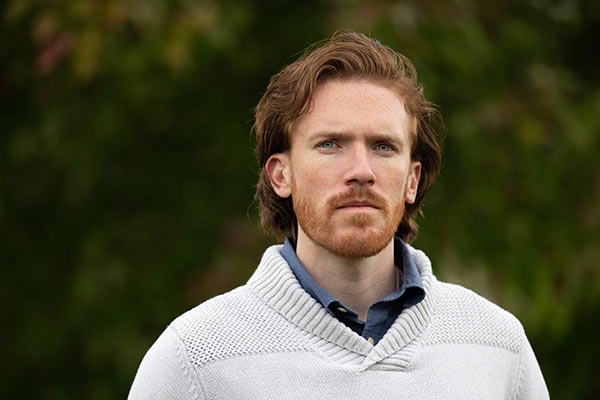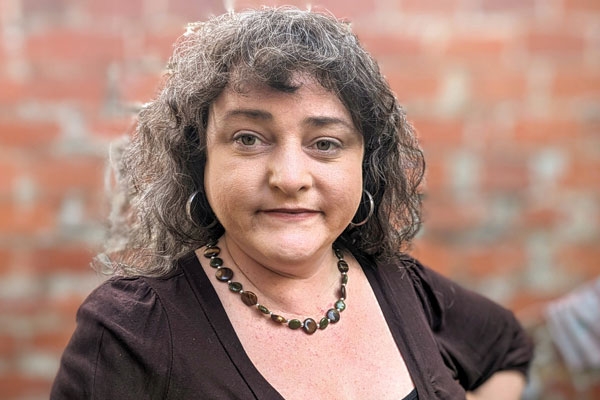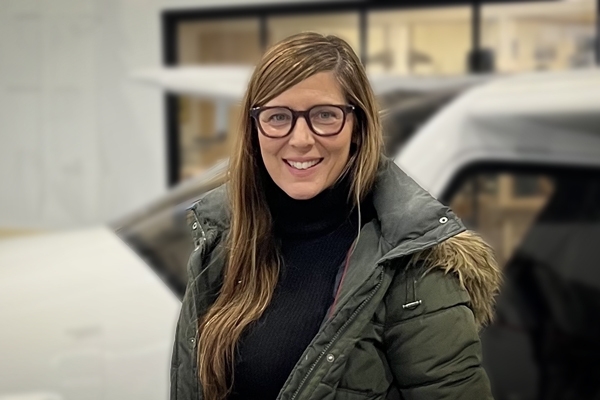You'd think writers would excel at filling out graduate school applications and submitting personal essays, right? Even if your writing chops are top-notch, you'll want to make sure you are fully prepared before you submit your materials: Is your work the best it can be? Are you ready to make sacrifices for your passion? Do you know what genre you want to pursue?
We asked a few of our Post-Baccalaureate Certificate Program in Writing graduates—Rose Heredia, Steve Lane, Lisa Riddiough and Kristina Tate—for their advice on the M.F.A. application process and what helped them succeed in applying to graduate school.
- Make writing a priority.
Rose Heredia: "The decision to be in an M.F.A. program is distinct to each person and where they are in their lives. It's about making writing a priority in one's life. It's about making choices with how you spend your time and the value of your time. What's going to get me to where I want to be in the long run?"
- Define your purpose for getting an M.F.A.
Steve Lane: "Whether it's to improve your writing by getting new feedback; improve your writing practice by getting the motivation an M.F.A. program generates; get experience in career-related activities like teaching, editing or publishing; or make connections with others who can generate publishing and career opportunities, knowing why you're going to graduate school is a very important first step."
- Know which genres you are most interested in before you apply.
Heredia: "Most programs don't allow cross-applications. You either apply to poetry, prose or whatever other genre the school offers. Some programs allow you to take different classes in different genres upon acceptance, but you have to have a set genre upon applying. Some programs allow it, and some don't."
- Decide what is important to you, as a student and as a writer.
Heredia: "Figure out if location, faculty, cost, length of the program or some other aspect will be the deciding factor in where to apply. I decided that USF was a good fit for me because its M.F.A. is specifically designed for working students. What was important to me was convenience. Others might care about faculty or might want to only apply to programs that provide scholarships or cover tuition. Whatever is important to you as a student and as a writer is what counts."
- Determine your top programs, with your goals in mind.
Lisa Riddiough: "You'll need to decide what are your top choices and whether a traditional or a low-residency program is best for you. Low-residency is becoming more and more popular and can offer greater flexibility than the traditional structure."
Heredia: "If I hadn't been accepted to a full-residency M.F.A. program, I had planned to apply to low-residency programs."
- Pinpoint at least three individuals who will write recommendations for you.
Riddiough: "They should be familiar with your writing and your work ethic and have an understanding of how you will add to the classroom culture."
Kristina Tate: "I could not have done any of this if it weren't for the mentor I found in instructor Steve Albert while I was studying at UC Berkeley Extension. He and I are still in contact. He was a crucial part of my M.F.A. application process and continues to be a great inspiration to my writing."
Lane: "Before taking writing courses at UC Berkeley Extension, it had been more than two decades since I had spent time in school, in a completely unrelated field. Because of Extension's writing courses, not only did my writing improve but I also developed relationships with teachers who knew me and my writing, and who very generously wrote letters for my applications."
- Prepare your "Writing Résumé" and manuscripts for your applications.
Riddiough: "As you prepare your writing résumé, include published works, classes taken, conferences attended, critique groups and any other activities that showcase your efforts. The writing samples you submit weigh heavily in M.F.A. admissions decisions. You will most likely submit the same writing samples to each school unless you are applying to different genres. However, your personal essays will vary based on the topics and questions asked in each application."
- Believe in yourself and aim high.
Tate: "Having that one 'dream' school, one I thought was way out of my league, helped me to accept myself as an artist. I was astonished when I got in, but the act of applying and considering such a lofty goal helped me become a stronger candidate. I think as artists (and for myself, as a woman) we spend too much time downplaying ourselves and our art. Aiming higher is a practice that I constantly strive for in my writing now. There's no reason not to shoot for the stars."
- Don't be afraid to call the admissions directors.
Riddiough: "They want you to apply, and will encourage you and answer your questions throughout the application process."
Lane: "The primary job of the M.F.A. admissions staff is to get new students into the program. During my decision process, I communicated substantially with three programs and I found the admissions staff at each to be friendly, proactive and very informed and forthcoming. All of that said, they are very busy and you should absolutely reach out to them with questions or concerns."
And if it doesn't work out the first time you apply, remember...
- Rejection is an opportunity for improvement.
Riddiough: "Understand that admissions committees are like editors and agents; some of them will like and relate to your work and some of them won't—and you will most likely never know why."
Heredia: "If you can honestly acknowledge the issues with your manuscript, you are already improving yourself. I got rejected by the seven schools I applied to the first time because my submission might have been written well but it had no heart. I learned that quickly. Don't fret. It just means you have to try harder, read more and write more."
Rose Heredia attends University of San Francisco's full-residency M.F.A. in Writing program.
Steve Lane will be attending the M.F.A. in Writing program at the California College of the Arts this fall.
Lisa Riddiough will be attending Hamline University's low-residency M.F.A. in Writing for Children and Young Adults beginning this summer.
Kristina Tate attends Columbia University School of the Arts M.F.A. Program. She just completed all of the program's coursework and is writing her thesis.



